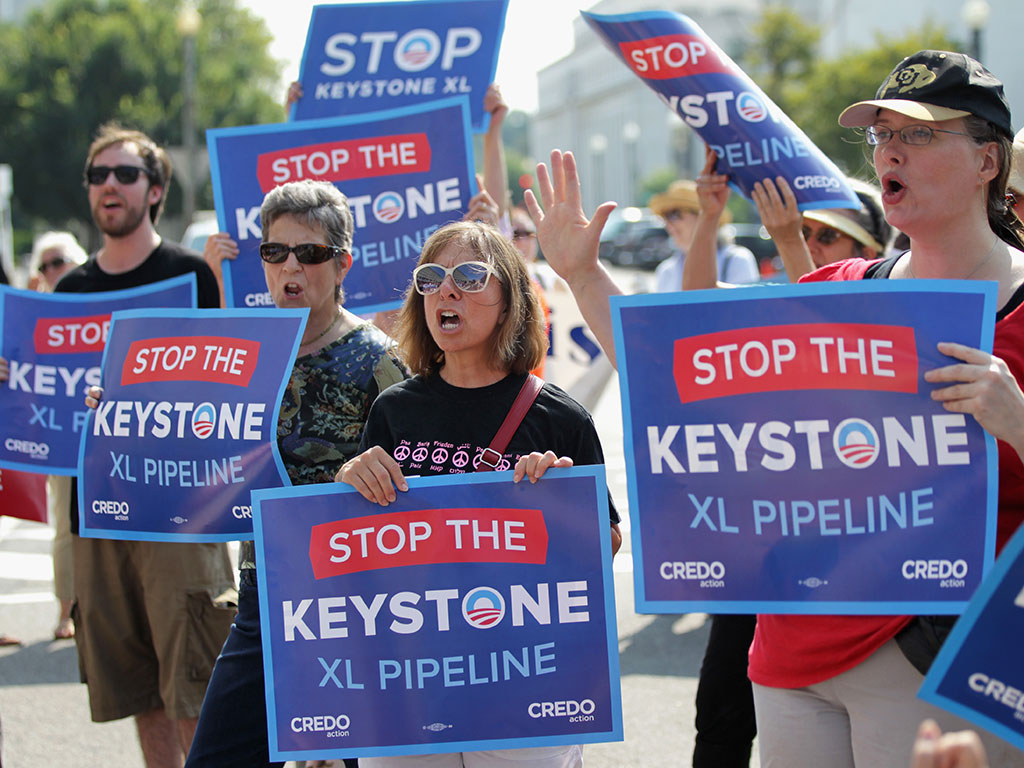Controversial Keystone pipeline to be debated in Senate
Obama threatens veto over oil pipeline that industry has long called for, but environmentalists claim is no longer required

Activists protest against the proposed Keystone pipeline. Environmentalists are concerned that the tar sands that would be used for oil are less eco-friendly than other sources
The never-ending debate among US politicians over the Keystone XL oil pipeline is set to reach the Senate this week, after a bill proposing it was backed last week in the House of Representatives.
First announced in 2008, the Keystone XL pipeline would cost around $5.4bn to build. The 1,897km extension of the pipeline would run between Alberta, Canada, into the US and towards the Gulf of Mexico.
[E]nvironmentalists see it as a disastrous project that would be a backward step for the country
The bill is a controversial one, with Republicans almost unanimously backing the pipeline’s construction, alongside some Democrats. However, environmentalists see it as a disastrous project that would be a backward step for the country. They have long argued that President Obama would have betrayed his green credentials if he were to support the construction, as the tar sands that it would be tapping into are said to be worse for the environment than other sources of oil. For his part, Obama has hinted that he would use his power of veto to block the project if senators approve it.
However, while Republicans – who now control both the House of Representatives and the Senate – will continue to push for Keystone’s construction, some observers are arguing that the collapse in the global price of oil means it is no longer necessary. With oil dropping to below $50 a barrel in recent weeks, the US industry is under increasing pressure to remain profitable.
The State Department – which has to approve the project because it crosses international borders – released a statement a year ago that suggested Keystone might not be viable if prices continued to drop. “Oil sands production is expected to be most sensitive to increased transport costs in a range of prices around $65 to $75 per barrel. Assuming prices fell in this range, higher transportation costs could have a substantial impact on oil sands production levels.”
The report added, “Prices below this range would challenge the supply costs of many projects, regardless of pipeline constraints, but higher transport costs could further curtail production.”
While few people think that the dramatic fall in price to below $50 a barrel is likely to last into the longer term, it certainly places greater pressure on an expensive new pipeline that may not be financial viable.













